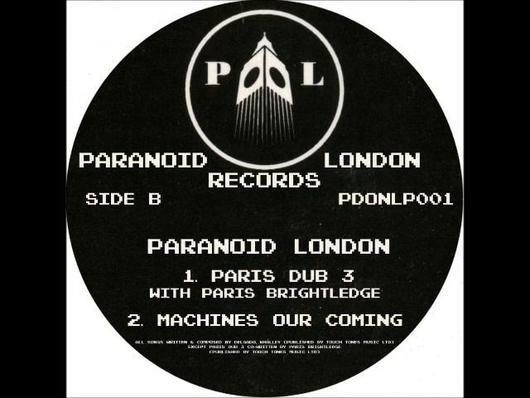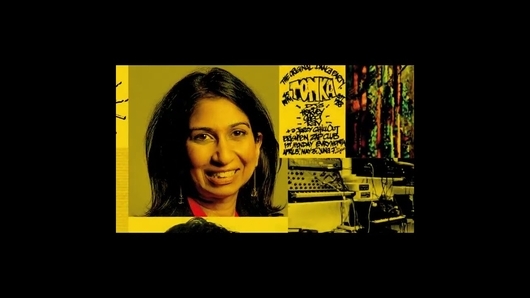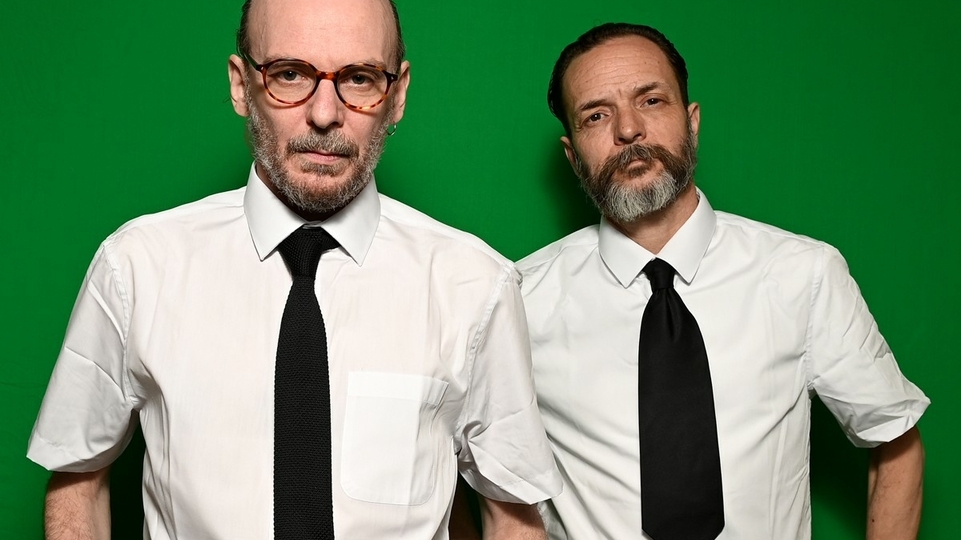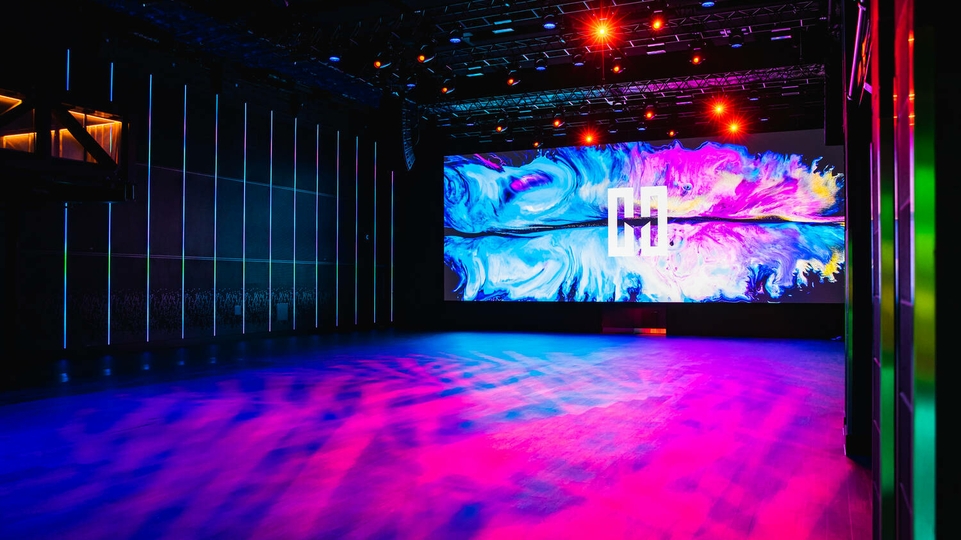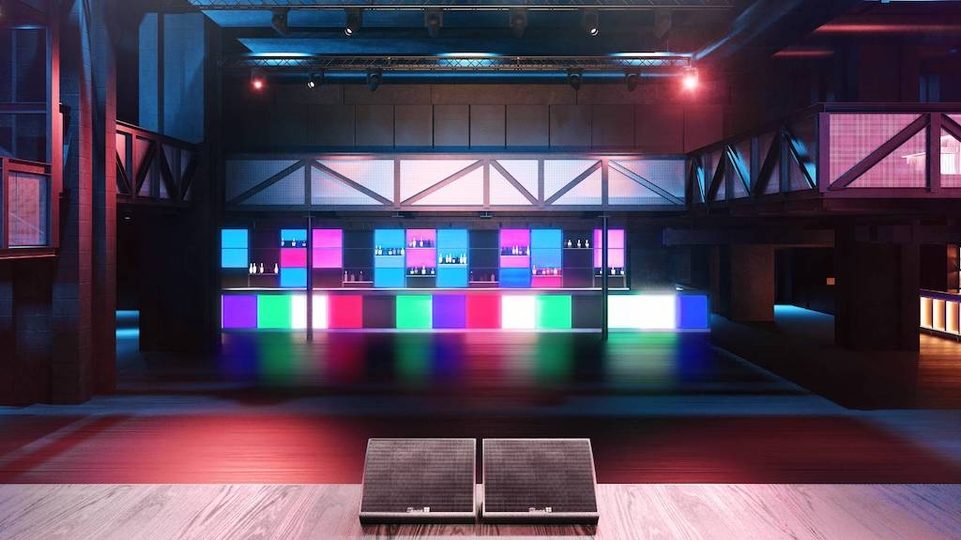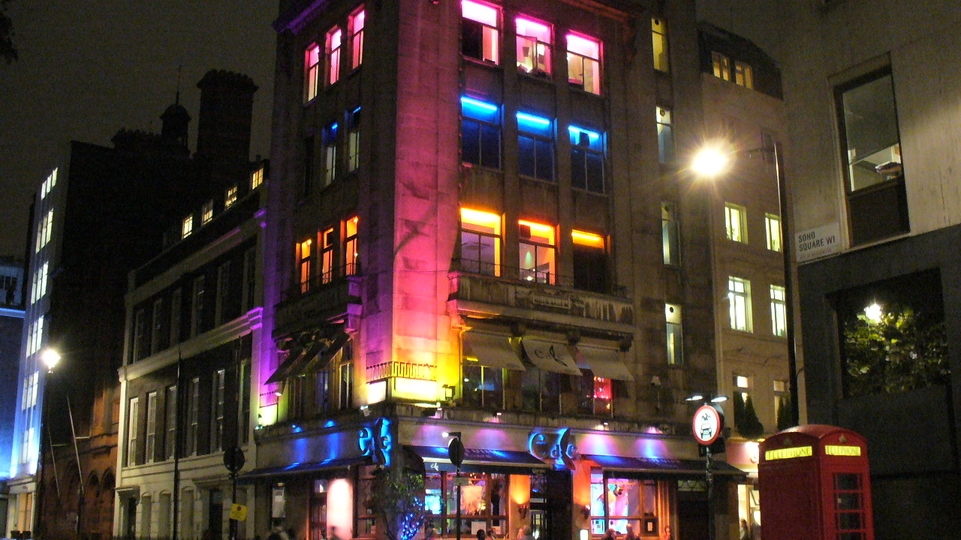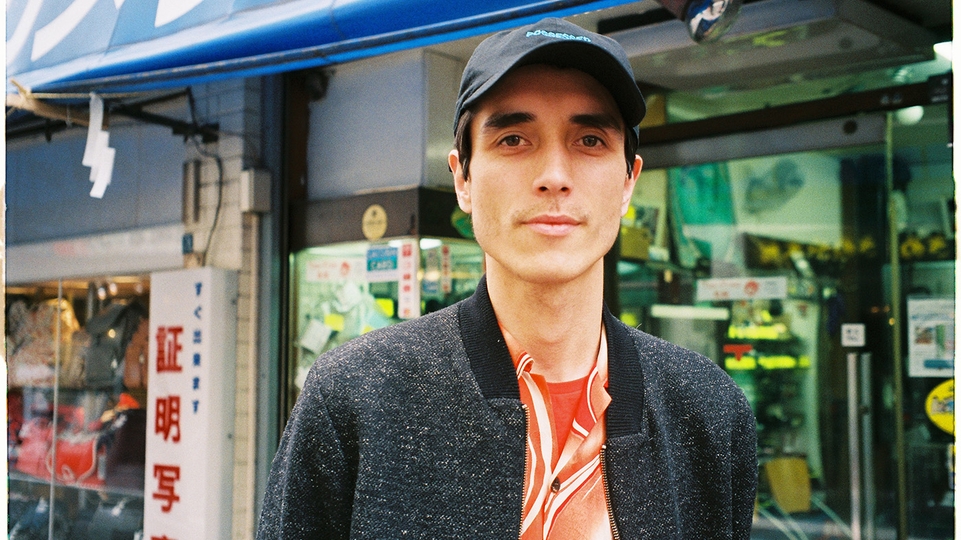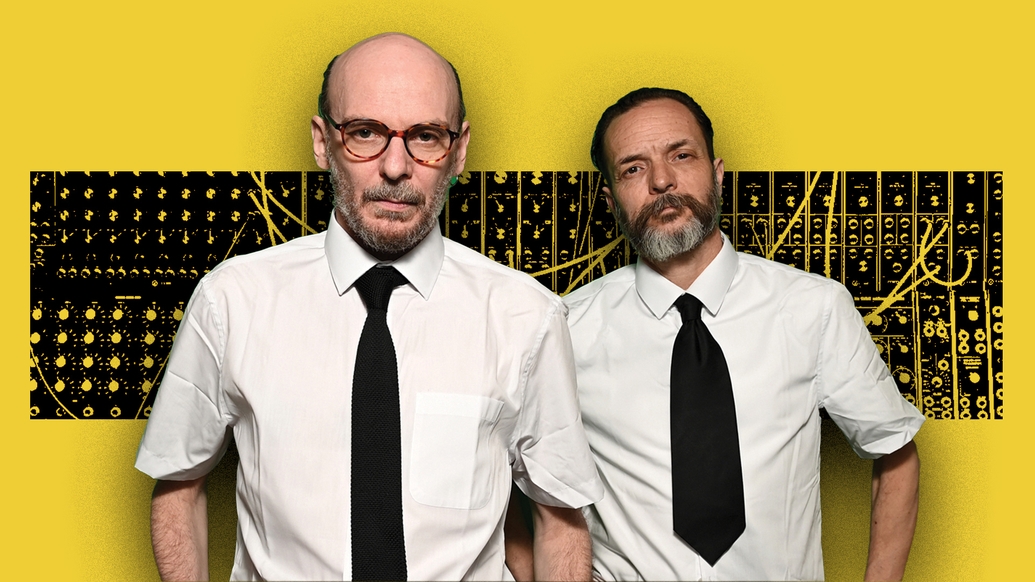
Paranoid London’s Acid Reign
Acid duo Paranoid London new album boasts a beefier sound than ever, and a host of new collaborators. Here, Joe Roberts meets them and learns how a chance meeting, faster tempos and the politics of the moment have shaped their new approach
It’s a dark, wintery evening in far North London and Paranoid London are in full flow at DRUMSHEDS, London’s latest super-venue. Opened on a former IKEA site, with the shelves gone the vastness of the space is overwhelming, stretching high above and out of our peripheral vision on either side. It’s a daunting place to fill, but in front of us an entire wall of screens flashes a lysergic cascade of shapes and images interspersed with Paranoid London’s distinctive Big Ben logo.
Silhouetted against this are the two tiny figures of Quinn Whalley and Gerardo Delgado (aka Del), working the machines of their live set with fervour. Despite being dwarfed by the huge projections, their sound is huge. A remix of Denham Audio and DJ Fuckoff’s ‘Deep Breaths’ rocks the vast room with bass-rattling electro, while ‘The Motion’, their closing track tonight and the final cut from new album ‘Arseholes, Liars, and Electronic Pioneers’, pounds hypnotically, the deep timbre vocals of long-time collaborator Mutado Pintado combining with the track’s siren-like lead to draw everyone together. It’s a dazzling introduction to Paranoid London Mk.2. Welcome to the stadium years.
‘Arseholes, Liars, and Electronic Pioneers’ births this beefier sound, keeping their 303-heavy leanings but extending out to include distorted electro and chunky breakbeats. Honed at festivals, accompanied by visuals from Fatboy Slim collaborator Bob Jaroc, their third album features a cast of fresh collaborators, including Primal Scream’s Bobby Gillespie, producer Margo Broom, Fat Dog lead vocalist Joe Love, and Berlin-based singer and producer, Jennifer Touch. They join old favourites Mutado Pintado, Josh Caffé and DJ Genesis. The album’s inlay, meanwhile, is part rogue’s gallery, part pin-ups of heroes, mixing up photos of figures who’ve earned the duo’s ire or respect.
We’re due to meet in Soho to go around some of the record shops that informed their own journey. But when it starts raining on the way, we decamp to Paranoid London’s other natural habitat, the pub. Off-stage, their energy combines in a similarly colourful and chaotic way, while also revealing contrasts. On pints and rollies, Quinn is the enthused, chuckling storyteller, the member of the group still rolling through to the afters. On bottles and straights, Del is more understated and tailored, cutting in with details and occasional disagreement. “He’s the more sociable one, but I’m the more sensible one,” he says at one point. “He comes to me with all these crazy ideas and I say, ‘How much?’”
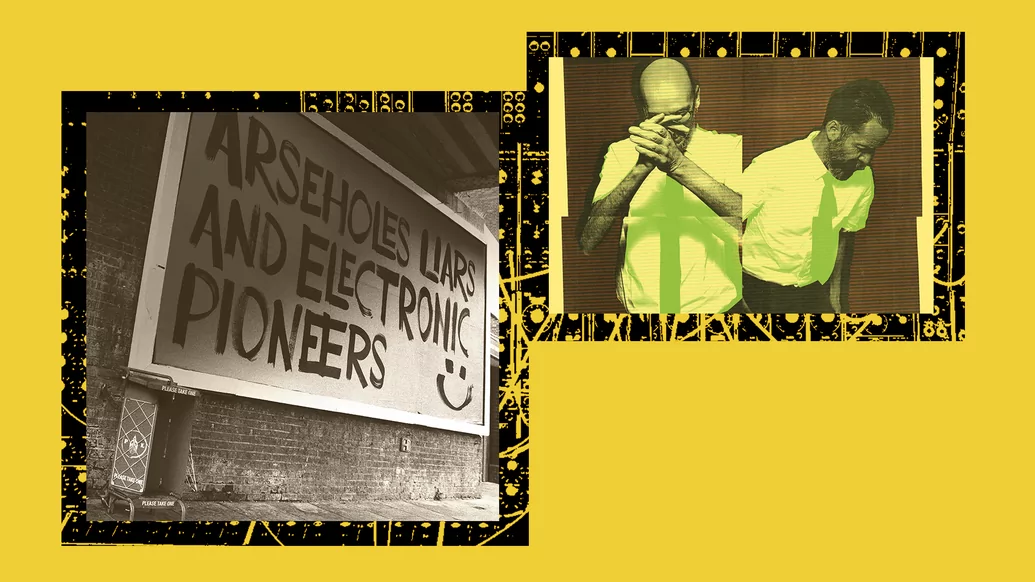
“We were getting really bored of playing at 125bpm, so we started making stuff that’s a lot faster” – Quinn Whalley
Long before they met though, both made foundational trips to record shops like Bluebird, Groove, Trax, Hitman, Tag and Choci’s Chewns. A teenage Quinn would go on all-night trips to the nearby Heaven, then straight to school, while Del’s mate, now the last barrow boy still selling fruit and veg in Soho, once looked after DJs’ cars when they visited the old Sabres Of Paradise studios.
If ‘Arseholes, Liars, and Electronic Pioneers’ feels like a new beginning of sorts, then it does reflect a change in the duo’s approach. “We had the Fortress for nearly 20 years,” says Quinn on their first iconic studio space in Old Street. “Since then, every year we kept getting moved on, because the place would be sold for luxury flats.” Their last studio, “if you can call it that”, was filled with Polish builders queuing for what turned out to be a brothel in the same complex. “They knew we did music so they’d show us these videos of their cousin on Poland’s Got Talent.” A chance meeting in a restaurant with Margo Broom, founder of North London’s Hermitage Works Studios, led to them finding their new space in one of her spare rooms.
“It was one of the best things we ever did,” says Quinn, adding he and Del took a year to actually make the move. With a sideline building and repairing synths, Margo’s studio proved a treasure trove. “It wasn’t just the 303 and 808,” says Quinn on PL’s former blueprint. “I went and got all this equipment that I’d had lying around in other people's places for 15 or 20 years, and Margo started dumping in all these other things.” Included in this was Quinn’s new secret weapon, the Kurzweil K2000. “I’m sure he makes up half of these as he goes along,” chips in Del.
“The Outland 3000 Fart Box Mk2 is another of my favourites,” shoots back Quinn without a pause. “It’s got to be the Mk2.” With the likes of Body Hammer’s Scott Fraser also in the building, and a procession of friendly and knowledgeable musicians and sound engineers always hanging around, often till nine in the morning, Quinn labels it “vibey as fuck”. But it wasn’t just Margo’s studio gear that contributed to their new, richer sound. “Our stuff was always really rough,” he goes on. “Margo started mixing it down with us and it just completely changed everything. Whether you like the new tracks or not, they sound sonically amazing.”
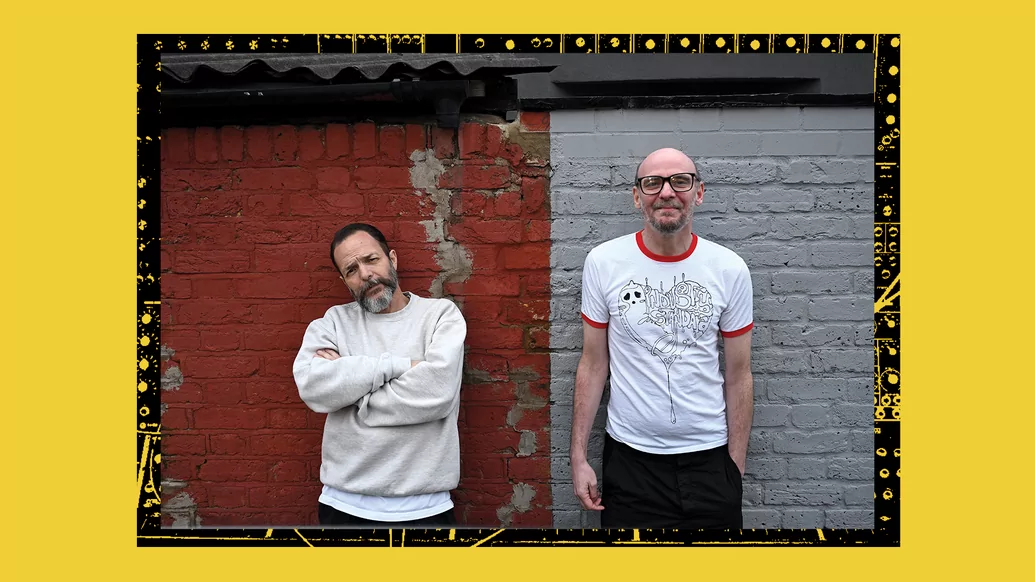
Paranoid London’s roots lie in the early days of acid, their experiences of London clubs and outdoor parties such as Energy, which Del tells us suddenly arrived in his tiny home village of Effingham in 1989, filtered through imagining the original Chicago clubs that produced such freaky sounds. “The stuff we were making was for sweaty little dark rooms,” says Quinn in response. While they still play such places as DJs, bringing along their 303 and a couple of synths, Paranoid London live shows are now a mainstay of the festival circuit, last year taking in the likes of Glastonbury, Love International, Movement and Sonar. “You’ve got to make bigger records,” says Del.
Album track ‘GRNDR’, a pounding, near 140bpm acid electro groove with an anonymous New York new wave-style vocal was the first live favourite that pointed the way. “We were getting really bored of playing at 125bpm, so we started making stuff that’s a lot faster,” explains Quinn, before chuckling: “It took us so long to do the album, now everyone is playing faster!” “It’s not even the music that takes that long,” adds Del, telling us they’d written the album over a period of two months, when they spent every day in the studio. “It’s getting vocals that takes forever.”
On board, as always, are Mutado Pintado, aka Craig Louis Higgins Jr., who Quinn also serves with in Warmduscher and calls “the best vocalist on the planet”, plus Josh Caffé. “Nobody does sexuality as good as he does,” says Quinn. Also returning is Detroit’s mysterious DJ Genesis, whose vocals accentuate the bubbling cauldron of acid that is ‘Up Is Down’. Despite having appeared on ‘Lovin U (Ahh Shit)’, what Del calls “one of the best records” from their first album, the duo still don’t know much more about her than an association with her hometown’s legendary Underground Resistance. “She hardly ever replies to our emails,” says Quinn. “Then every now and then she sends us an amazing vocal.”
Joining them are a whole new round of star turns. Bobby Gillespie fronts album opener ‘People (Ah Yeah)’, channelling his soul-soaked vocals into beatless melancholic acid that can’t help but recall ‘Screamadelica’. “That was literally just from asking,” Quinn explains, still somewhat incredulous. “And he said yeah!” The original plan was to make a dancefloor banger. But when the duo weren’t happy with the result, Del had to sheepishly phone him up. “‘You know the track you did? It doesn’t really fit the album. Can you do something more blissed out?’” Despite saying it would take him months to write something new, two days later Bobby had nailed it, playing them the bones of ‘People (Ah Yeah)’ down the phone.
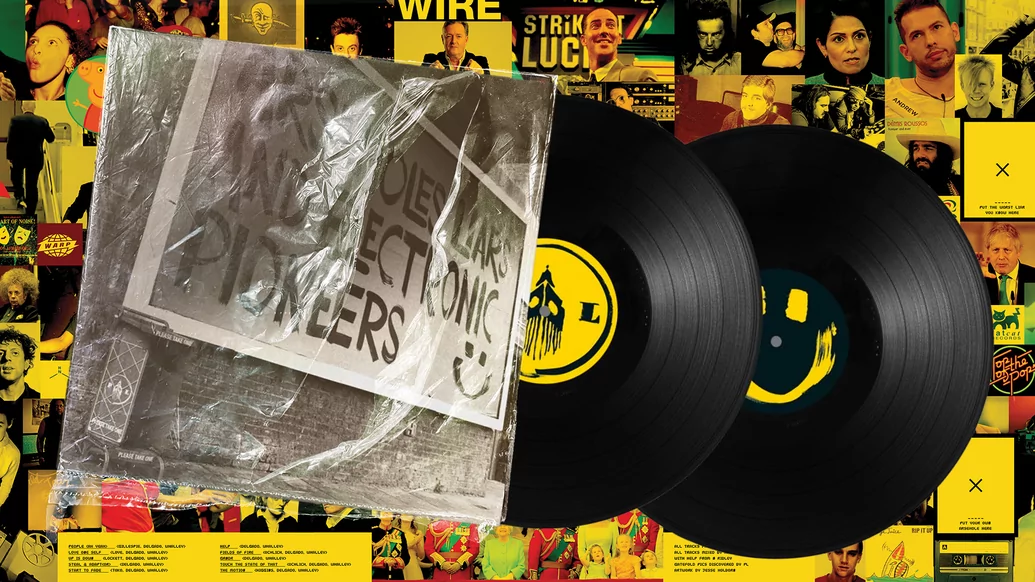
“The reality is we really needed a title for the album, we couldn’t come up with one, and the first thing that Del said that was really catchy was, why don’t we call it ‘Arseholes, Liars, and Electronic Pioneers’?” — Quinn Whalley
Joe Love, from rising South London band Fat Dog, fronts ‘Love One Self’, subverting self- care tropes to preach about an earthier kind of self love, much to the duo’s amusement. “We’ve got some merch coming out and one of the T-shirts is ‘Love One Self’,” grins Del. “It literally could mean something totally different, but we all know what it’s about.” ‘Touch The State Of That’, an electro track channelling the ethereal beauty of early Sabres, especially their remix of Throbbing Gristle’s ‘United’, then features Berlin-based vocalist and producer Jennifer Touch. “She’s so amazing and she doesn’t even know it,” says Del, still obviously enamoured with their experience working together.
This early prog influence, from labels such as Weatherall’s Sabres and William Orbit’s Guerilla Records, has filtered into their recent studio experiments. “Those records were the first time it was British producers with a British sound,” says Del on the appeal, following on from when most dance music was imported from America or Italy. “For the first time it was ours.” “After acid house, that was the first kind of music we both really loved,” adds Quinn, who was signed to Sabres as one half of Slack, alongside Justin Drake. “One of my mates sent in a tape that me and Justin had done,” he tells us about their debut 1993 single ‘Painkiller’. “They literally listened to this tape by two kids they didn’t know and then put it out.” In a twist of fate, the duo’s current manager, Alex Knight, was also the warm-up DJ at Sabres’ club night.
It all feels like an extended part of Paranoid London’s coming out of the shadows. When they released their first record, 2014’s ‘Paranoid London’, the duo were still anonymous, preferring to let their music do the talking. For its follow-up, 2019’s ‘PL’, they flipped the script and did interviews. ‘Arseholes, Liars, and Electronic Pioneers’ not only widens the window musically on their past, it also stamps a more political intent, Paranoid London style. “Our rivers are running full of human excrement. There are thousands of kids that don’t get hot meals everyday. You can’t afford your rent or your weekly shop,” says Quinn passionately. “Lighten up son,” chips in Del.
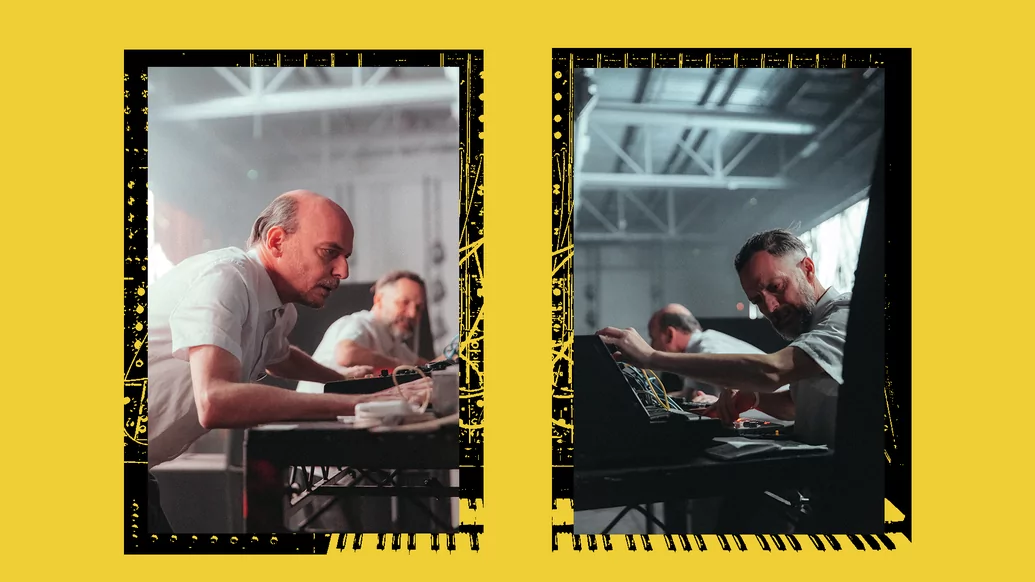
“The people that are profiting from all this are laughing at us,” Quinn continues, undeterred. “We could say it’s about all of that. But the reality is we really needed a title for the album, we couldn’t come up with one, and the first thing that Del said that was really catchy was, why don’t we call it ‘Arsehole, Liars, and Electronic Pioneers’? Boom, that’s brilliant!” “The other thing is that it fits so well,” says Del. “We’ve been doing it for so long and we’ve met so many people along the way, and they all fall into one of those categories.”
Among those condemned are the leering faces of various Tory villains and shady royals. “We put Braverman on there,” says Quinn. “Then she gets sacked. Then she comes back. Now she’s been sacked again. By the time the album comes out she’s probably going to be leader of the Tory party.” A sign of our tumultuous and ever-more right- wing times, these contemporary presences are joined by more personal targets. “There’s a point in your life when you love Peppa Pig, then there’s a point in your life where you go, ‘God I hate you’," says Del on his daughter’s inclusion of the children’s animated character.
Among the pioneers and personal favourites, including Mantronix, Art Of Noise, Marley Marl, Colin Faver, Aphex Twin, Gary Numan, Richard H. Kirk, Andrea Parker and Jamal Moss, there are some surprise heroes, too. ‘Gary Davies was a DJ who used to be on Radio 1,” Del tells us on a vintage shot of the presenter’s fresh-faced smile. “He played all this pop music, Kylie and stuff like that. Then he went to Ibiza, and two weeks later he was playing ‘French Kiss’ and all this house music at five o’clock in the afternoon. He was one of the people who brought electronic music to the masses.”
It’s not the first time Paranoid London have shown their political sentiments. Their clothing has long been produced in association with Sports Banger, the affordable clothing company set up by Jonny Banger, who started bootlegging famous brands before moving into more activist realms, putting out T-shirts supporting the NHS and others criticising the actions of the Met Police and the Conservative government.
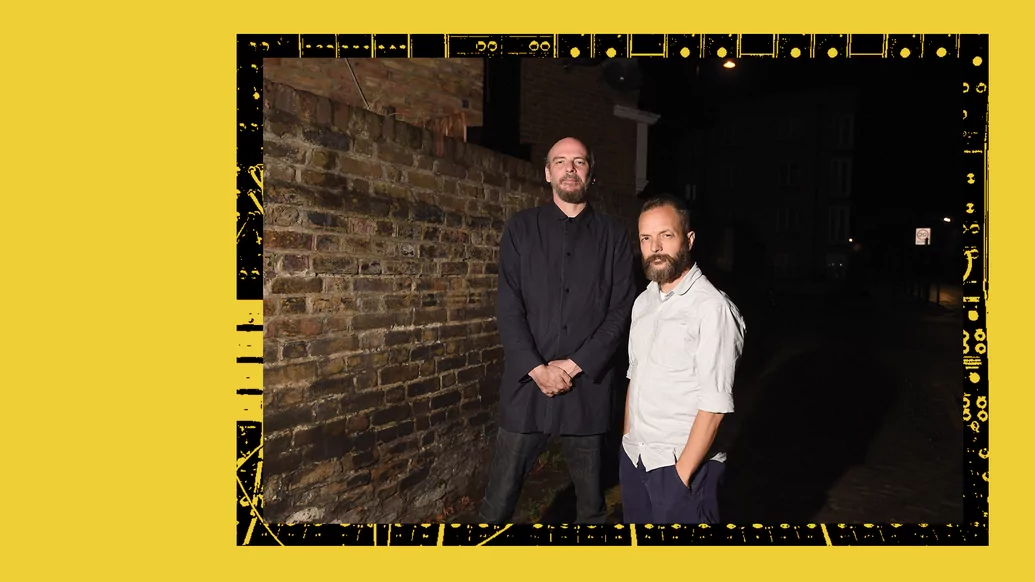
Meeting after a performance at Phonox, Jonny had originally asked Paranoid London to make the music for Sports Banger’s first fashion show, promising them some amazing clothes in return. “What we didn’t realise is that we’d be modelling them!” laughs Quinn. “We had to do all these outfit changes and ended up in Vogue magazine. It was amazing. “They’re good eggs,” he goes on, talking about how during lockdown Sports Banger supplied essential workers with clothing and helped feed old people in homes. “He does a nice pink sweatshirt as well,” he quips, pulling at the Paranoid London top he’s wearing.
Sports Banger has also drawn Quinn and Del’s kids into what they do. “My daughter and her mates, when she got old enough to know what we did for a living, used to Google us and laugh at us on YouTube,” says Quinn. “Then when they heard about Sports Banger we suddenly got cool.” She’s since sung backing vocals at Glastonbury: “She’d never even been to a gig before.” Del’s three kids, meanwhile, visit the studio, displaying a similarly punky, DIY spirit to the band. “My daughter managed to blag some bongos, got Quinn to set up a mic, program a drum loop and then made a sound like a frog,” he says. “One of the vocals was, ‘I’m walking down the street and I don’t like you’, which I thought was genius for a 10-year-old.”
Hanging out with Paranoid London is a non-stop stream of stories, from the first club night Del ran in the cellar of a Leatherhead wine bar with Terry Francis to Quinn’s time on tour supporting Bryan Adams. They’ve proved their knack for being in the right place at the right time, connecting the dots between pivotal moments in UK dance music right up to the present day. So if they were to apply the album title to themselves, where would judgement fall? “He’s a liar, I’m an arsehole and Margo is an electronic pioneer,” cackles Quinn, before we head our separate ways into the night.

